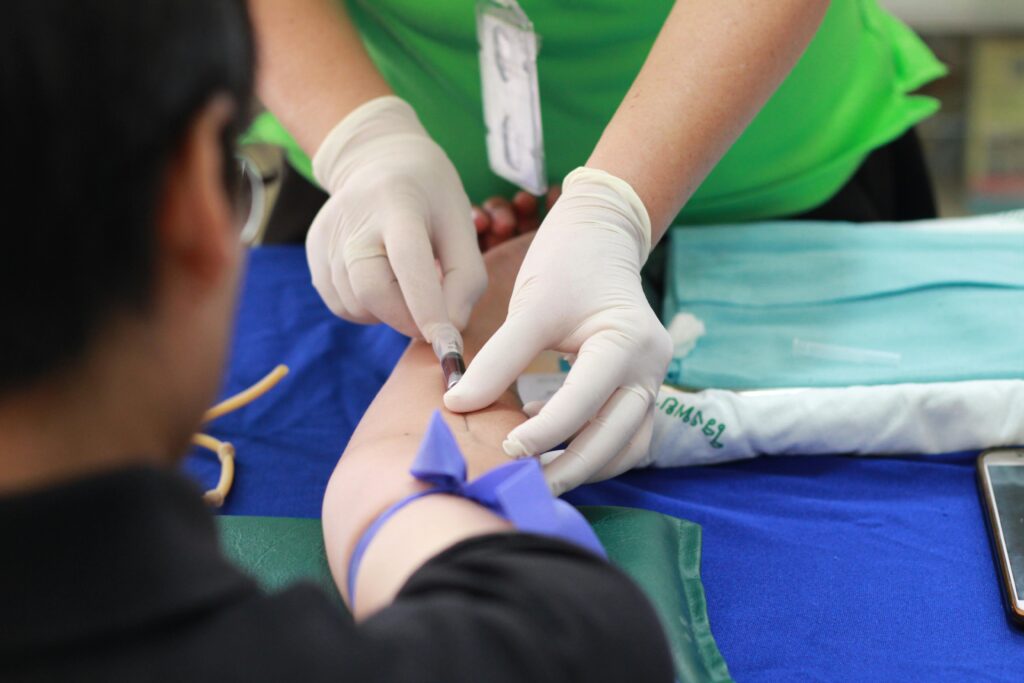Ketamine is a medication that has been used for decades as an anesthetic and pain reliever. In recent years, it has also emerged as a promising treatment for depression, especially for people who have not responded well to other antidepressants. Ketamine affects a chemical in the brain called glutamate, which is involved in mood regulation and neuroplasticity (the brain’s ability to change and adapt). Ketamine can rapidly improve depressive symptoms, sometimes within hours or even minutes, and may also reduce suicidal thoughts.
In 2019, the Food and Drug Administration (FDA) approved a nasal spray form of Ketamine called esKetamine (Spravato) for the treatment of treatment-resistant depression (TRD). TRD is a condition where depression does not improve after trying at least two different antidepressants. EsKetamine is a more potent version of Ketamine that can be given at lower doses and has similar effects. EsKetamine is administered in a doctor’s office or a clinic, under close supervision, along with another oral antidepressant.
Ketamine therapy can offer significant benefits for people with TRD, but it is not a magic bullet or a cure, and it is not for everybody. Ketamine therapy has some limitations, which is why it is essential to integrate Ketamine therapy with other therapies and treatments that can enhance its effects, address the underlying causes of depression, and support long-term recovery.
Why combine Ketamine Therapy?
Combining Ketamine with other therapies and treatments can help achieve several goals:
- To boost the antidepressant effect of Ketamine and make it last longer
- To prevent relapse or recurrence of depression after Ketamine therapy
- To address the psychological, social, and environmental factors that contribute to depression
- To improve the overall quality of life and well-being of people with depression
Integrations with Ketamine Therapy
Combining Ketamine treatment with evidence-based therapies may offer improved outcomes and long-term benefits for patients. Some of the therapies that can be integrated with Ketamine therapy include:
Psychotherapy
Psychotherapy is talking with a trained mental health professional who can help you understand your emotions, thoughts, behaviors, and relationships. Psychotherapy can help you cope with stress, trauma, grief, or other life challenges that may trigger or worsen depression. Psychotherapy can also allow you to change negative or distorted thinking patterns that may interfere with your mood and self-esteem. Different types of psychotherapy can be effective for depression, such as cognitive-behavioral therapy (CBT), mindfulness-based cognitive therapy (MBCT), interpersonal therapy (IPT), or psychodynamic therapy. Psychotherapy can be done individually, in groups, or with family members or partners.
Cognitive-behavioral therapy (CBT)
CBT is a type of psychotherapy that focuses on identifying and challenging irrational or unhelpful thoughts (cognitions) that may cause or maintain depression. CBT also teaches you how to modify your behaviors (actions) that may reinforce depression or prevent you from engaging in positive activities. CBT can help you develop more realistic and balanced perspectives on yourself, your situation, and your future. CBT can also allow you to learn coping skills to deal with stress, anxiety, anger, or other negative emotions that may affect your mood.
Mindfulness-based cognitive therapy (MBCT)
MBCT is a psychotherapy that combines CBT with mindfulness practices. Mindfulness is a state of awareness and attention to the present moment without judgment or reaction. Mindfulness can help you become more aware of your thoughts, feelings, sensations, and impulses and how they affect your mood. Mindfulness can also allow you to cultivate acceptance, compassion, and curiosity toward yourself and others. MBCT can help you prevent relapse of depression by teaching you how to recognize early signs of depressive mood and how to respond to them with mindfulness skills instead of falling into automatic negative thinking patterns.
Transcranial magnetic stimulation (TMS)
TMS is a non-invasive procedure that uses magnetic fields to stimulate specific brain areas involved in mood regulation. TMS can help improve depressive symptoms by enhancing the activity of brain cells that produce neurotransmitters such as serotonin and dopamine. TMS is usually given as a series of sessions over several weeks, in addition to medication or psychotherapy. TMS may be an option for people who have not responded well to antidepressants or who cannot tolerate their side effects.
Lifestyle Changes for Depression
Lifestyle changes are modifications in your daily habits that can affect your physical and mental health. Lifestyle changes can support Ketamine therapy by improving mood, energy, sleep quality, immune system function, and overall well-being. Some examples of lifestyle changes that can help with depression are:
Exercise
Exercise is one of the most influential and natural ways to boost mood and reduce stress. Exercise can increase the levels of endorphins, serotonin, and other chemicals in your brain that make you feel good. Exercise can also improve your physical fitness, self-confidence, and body image. Aim for at least 30 minutes of moderate exercise most days of the week or as your doctor recommends. Choose an activity that you enjoy and that suits your abilities, such as walking, jogging, biking, swimming, dancing, or yoga.
Nutrition
Nutrition provides your body with the necessary nutrients to function correctly. Nutrition can affect your mood by influencing the production and balance of neurotransmitters in your brain. Eating a healthy and balanced diet can help you prevent nutritional deficiencies, maintain a healthy weight, and reduce inflammation. Eat more foods that may improve depression, such as fruits, vegetables, whole grains, lean proteins, nuts, seeds, and omega-3 fatty acids (found in fish, flaxseeds, walnuts, and some supplements).
Sleep hygiene
Sleep hygiene is a set of habits and practices that can help you improve the quality and quantity of your sleep. Sleep is essential for your mental and physical health, allowing your brain and body to rest and repair. Lack of sleep or poor sleep quality can worsen depression by affecting your mood, energy, concentration, memory, and immune system function. To improve your sleep hygiene, try to:
- Stick to a regular sleep schedule: Go to bed and wake up simultaneously every day, even on weekends and holidays.
- Create a comfortable and relaxing sleep environment: Make sure your bedroom is dark, quiet, calm, and free of distractions such as TV, computers, phones, or pets.
- Avoid caffeine, alcohol, nicotine, and heavy meals close to bedtime: These substances can interfere with your sleep quality or make it harder to fall asleep or stay asleep.
- Avoid naps during the day: Napping can disrupt your sleep cycle and make it harder to fall asleep at night. If you feel sleepy during the day, try to get some sunlight exposure or do some physical activity instead.
- Establish a relaxing bedtime routine: Do something calming before bed, such as reading a book, listening to soothing music, meditating, or breathing exercises.
Social support
Social support is the presence and availability of people who care about you and can provide emotional, practical, or informational help. Social support can help you cope with depression by reducing loneliness, isolation, stress, and negative emotions. Social support can also provide positive feedback, encouragement, validation, and companionship. To increase your social support:
It’s essential to reach out to your supportive and understanding family members or friends. Share with them how you feel and what you need from them. Feel free to ask for help or accept it when offered.
Consider joining a support group for people with depression or similar experiences. These groups provide a safe space to share your feelings and challenges with others who can relate and empathize. They can offer valuable advice, tips, resources, and hope.
You should also seek professional help from a therapist or counselor who can provide you with personalized guidance and treatment for your depression. Therapy can help you improve your communication skills, interpersonal relationships, self-esteem, and coping strategies.
We can help!
If you are ready to take the next step and try Ketamine therapy for yourself, we invite you to contact us at Avesta Ketamine and Wellness. We are a wellness center that provides treatments for patients suffering from treatment-resistant mood disorders and chronic pain. We are experienced doctors who speak professionally and compassionately with our clients. We support our arguments by preferring medical, official websites, and academic studies. We offer personalized care plans that include Ketamine infusions, nasal sprays, and other therapies and treatments that suit your needs and goals. We also offer free consultations to answer any questions about our services.
Please visit our website to schedule your free consultation or book an appointment with us. We look forward to hearing from you.


